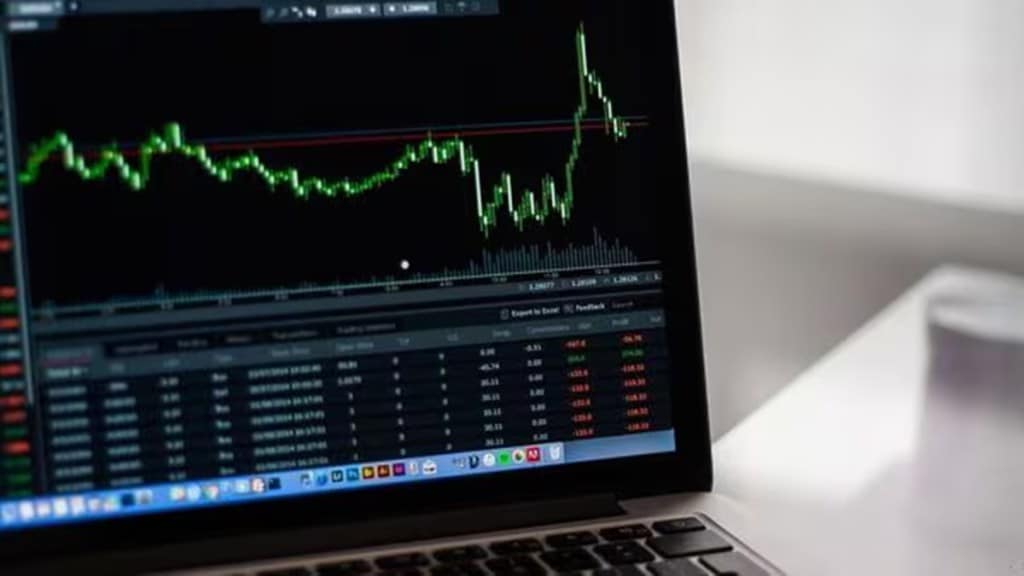Despite missing Street estimates on the revenue and net profit front in its October-December earnings, analysts have viewed the company’s performance with a cautious optimism. The company’s commentary on the revival of discretionary spending and its robust order book are key drivers behind this sentiment.
However, analysts remain vigilant about the challenges of total contract value (TCV) conversion and sustained growth in emerging markets after the expected tapering of the BSNL deal.
The positive sentiment was reflected in the company’s stock performance on Friday. The company’s shares closed up 5.67% at Rs 4,265.55 on BSE, on a day the Sensex closed down 0.31% at 77,378.91.
TCS reported a consolidated net profit of Rs 12,380 crore, up 4% sequentially, but slightly below Bloomberg’s estimate of Rs 12,534 crore. Revenue for the quarter declined 0.4% sequentially to Rs 63,973 crore, missing the forecasted Rs 64,748 crore.
Despite the muted performance, analysts viewed the company’s $10.2 billion in new deal TCV – a significant jump from $8.6 billion in the previous quarter – as a promising sign. Motilal Oswal analysts noted, “While revenue numbers were flat, the deal win TCV signals potential momentum pick-up ahead. A recovery in discretionary client spending, coupled with a strong US economy, could set a more favourable growth stage for FY26”.
On Thursday, the TCS management highlighted early signs of a revival in discretionary spending across sectors, supported by customer conversations. Analysts from ICICI Securities pointed out, “Demand for discretionary projects is expected to strengthen amid lower interest rates, reduced inflation, and declining unemployment”.
Operating margins for the December quarter rose to 26.6%, up from 26% in Q2FY25, bolstered by effective cost management and favourable currency movements.
The $10.2 billion TCV recorded in the October-December quarter marked a sharp improvement, with analysts highlighting the absence of mega deals (above $500 million) in the mix. The growth instead stemmed from multiple mid-sized deals across diverse domains, including AI-driven fraud detection, cloud migration, S4 HANA transformations, and cybersecurity solutions.
“TCS is working on several mega deals. While deal tenures remain unchanged, decision cycles have shortened. This trend suggests better deal conversions in FY26,” ICICI Securities said in its report.
Nomura analysts echoed similar sentiments, emphasising the company’s strategic focus on productivity enhancements, utilisation improvements, and employee pyramid rationalisation to sustain margins.
The BSNL deal, a key domestic growth driver in recent quarters, has reached its peak execution phase, with 70% completed. The management indicated the project would begin winding down in the January-March quarter, raising concerns among analysts.
“The sharp ramp-down of the BSNL deal could result in a significant growth disappointment in the near term,” BNP Paribas said.
Emerging markets, however, provided a silver lining. While North America and continental Europe faced pressure, India and West Asia-Africa demonstrated resilience, growing by 70.2% and 15%, respectively. Analysts credited seasonality for part of India’s performance, but questions linger about sustaining growth in emerging markets amid the BSNL tapering.
While analysts lauded TCS’s strategic initiatives and robust deal pipeline, challenges remain. ICICI Securities underlined the need for smooth TCV conversion to revenue amid macroeconomic uncertainties such as geopolitical instability.
Nomura analysts flagged concerns over the heavy reliance on the BSNL deal, stating, “BSNL contributed approximately 3% to FY25 revenue growth. How TCS offsets this decline remains unclear”.
Despite these challenges, TCS management remains confident about leveraging emerging market growth and scaling new deals across verticals. Analysts suggest that sustained recovery in discretionary spending and improved execution of new deals could fuel growth in FY26.


